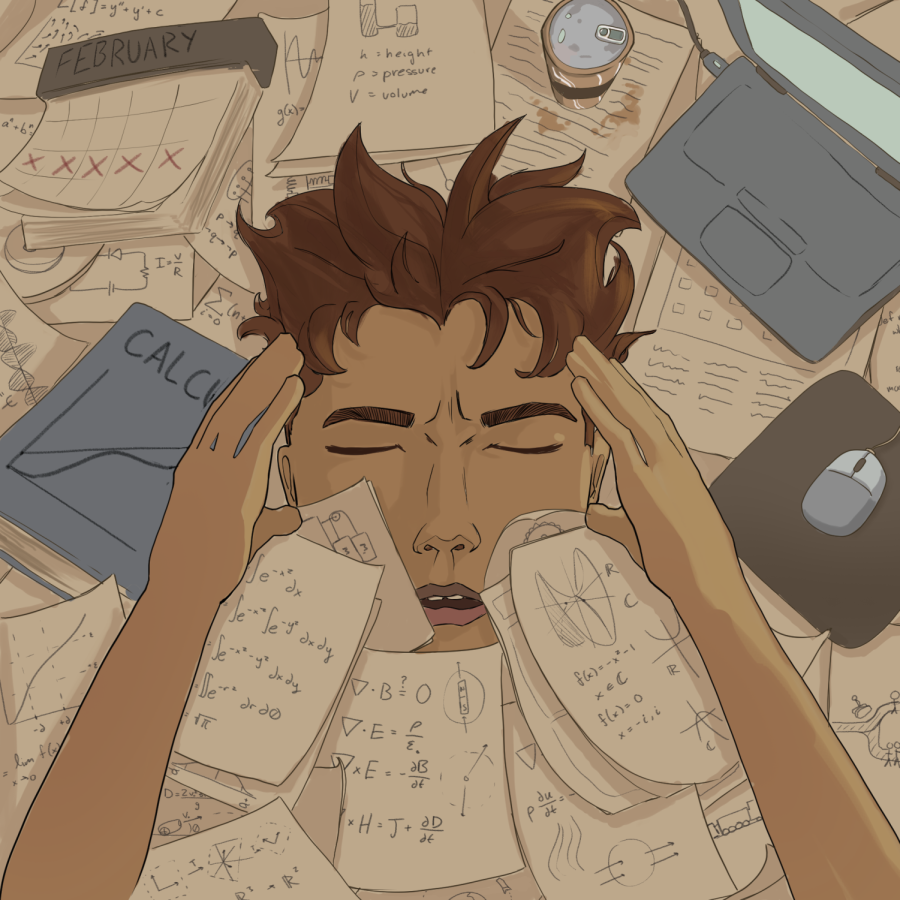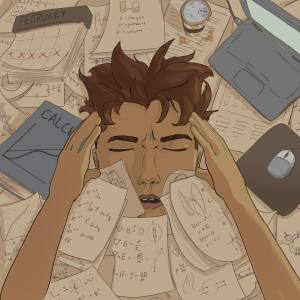Winter freeze forces UT students to manage higher workloads
February 12, 2023
In the wake of class cancellations from Jan. 31 to Feb. 2 due to dangerous conditions resulting from Texas’ winter freeze, some students say the time off has left them overwhelmed as they deal with their offloaded coursework.
In losing three school days, some professors reconfigured their syllabi in an attempt to make up for the lost time, leading students to struggle to manage their workload while also trying to recover from the aftermath of the freeze. Natalie Czimskey, an assistant speech, language and hearing sciences professor of instruction, said she worked with her students to manage the stress following the freeze.
“My approach was to maximize flexibility for the students because I know that a lot of professors were not willing to do that,” Czimskey said. “In the real world, if something traumatic happens, they readjust and give you an extension. We need to stop pretending that a lack of compassion makes better workers.”
English junior Robert Wood said their professors focused more on extending deadlines for assignments, causing them to have to work on both their extended and current assignments at the same time.
“It definitely added a lot of stress, especially since my schedule is packed as it is,” Wood said. “I barely have time to do the normal assignments, so having to add assignments on top of that to catch up on was pretty stressful.”
Sophie Sadetaporn, a management information system sophomore, said the extensions were helpful, with some of her professors completely exempting material from their syllabi.
“(The material exempted) was more supplementary material that wouldn’t have been on exams anyway,” Sadetaporn said. “I was still glad about that because why would I want to learn more (during the freeze)?”
As the freeze alleviated and the community continued to recover, the University sent out a statement saying that classes were expected to resume that Friday, Feb. 3. However, attendance could not be mandated.
“I barely had a means to get to class, and I still didn’t have power that day,” Wood said. “I really wasn’t able to fully be invested in an academic state of mind.”
Czimskey said she tried to accommodate students with difficulties even when classes resumed, despite refusal from other professors.
“I try to remember that whatever I’m feeling, my students are probably also feeling,” Czimskey said. “If my anxiety levels are high during an event, I’m fairly certain that my students’ anxiety levels are high as well.”
As the community recovers from the aftermath of the winter freeze, Czimskey said students continue to endure higher workloads from the lost week as midterms approach.
“It is critical for professors to remember that there is life beyond the academy,” Czimskey said. “Our students are going through things that will feel traumatic and exhausting, and that is not a sign of weakness or failure. That is a normal part of life.”












